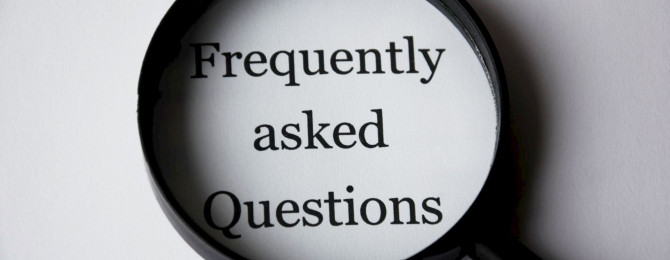FAQ: to hyphenate or not to hyphenate?
Vom 08/02/2023
A common mistake in written English is the incorrect use (or omission) of hyphens between words. Which is correct: “high-tech” or “high tech”? “20th century” or “20th-century”?
The answer is: both.
The need to hyphenate two words depends entirely on the context, i.e. their meaning and their position in the sentence.
Hyphens should be used in the following cases:
- When two words are used together as an adjective before a noun. To use one of the examples given above, if the words “20th” and “century” are used as a compound adjective i.e. used together to describe a word that comes immediately after them, they function as a single adjective and should be hyphenated. For example: “a 20th-century painting” or “20th-century fashion” (compare “a painting made in the 20th century” and “fashion in the 20th century). The hyphen makes it clear that the two words are working together, otherwise the reader might think you are talking about the 20th round of “century fashion”, for example. This rule also applies to quantities such as fractions that function as an adjective e.g. “a half-baked cake” and “a two-thirds majority”.
- When a noun or adjective is used with a past or present participle in a compound form. Past and present participles (words ending in -ed and -ing, respectively) can be used in conjunction with nouns and adjectives to describe something that immediately follows. For example, “James is a high-flying businessman”, or “The Home of Translation is a Bordeaux-based company”. In these examples, the hyphenated words form a compound modifier (compare “that businessman is high flying” and “The Home of Translation is Bordeaux based”).
- In hyphenated compound words. Some words are frequently used together and must be hyphenated as a rule, such as mother-in-law, merry-go-round and well-being.
- In numbers. As a rule, numbers between 21 and 99 should be hyphenated when they are written out in full (e.g. “twenty-one” and “ninety-nine”), but not numbers above these. Compare “one hundred” and “one hundred and fifty-two”. However, it is important to remember that it is good practice in English to only write out numbers from one to nine. Numbers from 10 upwards should be written in their numerical form.
- With prefixes. Last but not least, prefixes must always be followed by a hyphen, except in closed compound words (see below). Some common prefixes are “ex-“, “pre-“, “un-” and “anti-”, among others. E.g. “Janet is the company’s ex-director” and “we have an anti-racism policy in place”.
When not to hyphenate
Now you’re familiar with the rules of when to hyphenate, let’s look at a few examples of when not to hyphenate:
- With adverbs. There is no need to hyphenate an adverb and a participle. For example, “an officially certified translator” is correct (whereas “officially-certified” would be incorrect!).
- In open or closed compound words. Unlike hyphenated compound words, other types of compound words are “open” or “closed”. These are never hyphenated but have a space or are joined together and the reader knows that they are a compound noun. Some common examples are “ice cream” and “living room” (open) and “football” and “grandmother” (closed).
We hope the above pointers have helped resolve all your hyphen-related doubts! For more information, don’t hesitate to pick up a dictionary to check what type of word it is you want to use or to look up common compound forms. Alternatively, let somebody else do it while you sit back and relax. Take a look at our copywriting services to find out how!
Beiträge nach Standort sortieren :
Auf der Suche nach einem bestimmten Thema? Versuchen Sie es mal hier :
